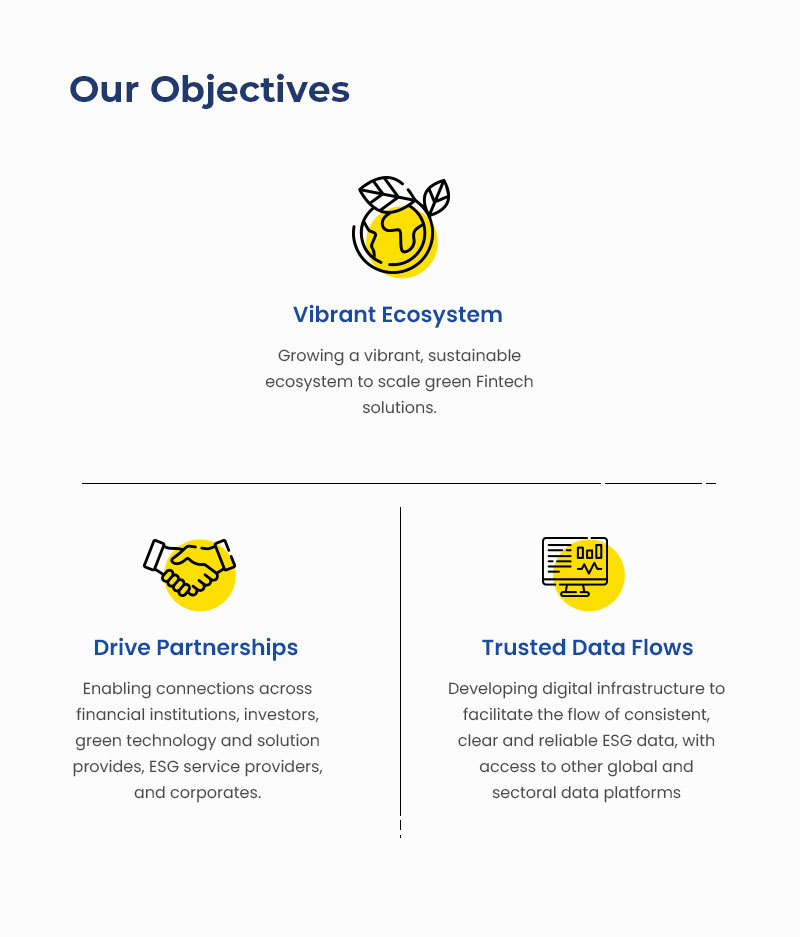
The Paris convention guidelines to prevent the 1.5-degree Celsius rise in global temperatures requires an all-out effort by every human, machine, and technology. Naturally, the FinTech sector too is covered and needs to do its bit to protect the one home we have – Earth.
A sustainable FinTech company is thus, no longer a fad. In fact, green fintech is a hot topic among software developers, entrepreneurs, investors, and end-users, and it’s a powerful trend to leverage for the growth of a new financial revolution.
FinTech takes on a green shade when financial services and products are deployed considering the environmental factors in the financial operations, to promote and stimulate sustainable investments and limit the sector’s carbon footprint.
Per the Green Finance Action Plan in 2019, it is now the fledgling agenda of sustainability. One of the primary initiatives is to use FinTech expertise to address the key difficulties in the Green Finance market.
The Monetary Authority of Singapore (MAS) has actively promoted FinTech and Green Finance and their adventure began in 2015. It is now widely regarded as one of the world’s top FinTech centers. Singapore comprises 101 FinTech companies and each one of them is looking forward to transforming to Green FinTech by factoring in sustainability goals and reducing their carbon footprints.
The summit set a number of goals, consisting of raising funds to guarantee US$100 billion in “climate finance” to impoverished countries each year. The next goal is collaborating to accelerate climate change action through governments, corporations, and civil society.
Several Green FinTech operations, such as green bonds, green investment funds, and huge organisations purchasing climate risk insurance, have been shown to be critical in mitigating climate change risks.

Establish a thriving Green FinTech ecosystem in Singapore and then expand the initiative beyond the country’s borders.
Creating bridges between financial institutions, investors, green technology and solution suppliers, Environmental, Social and Corporate Governance (ESG) service providers, and businesses.
Establishing a digital framework to support the flow of consistent, clear, and trustworthy ESG data, as well as access to other global and sectoral data platforms.
Green FinTech is a more environment friendly alternative to traditional finance. Gone are those days, when you used to drive to your bank to get a printed bank statement. Now, you can access your bank statements within a few clicks digitally. It improves convenience, reduces carbon footprint, and provides greater transparency in personal money management.
The most promising FinTech ideas for a sustainable financial sector encompass Artificial Intelligence (AI), sophisticated data analytics, tokens, and Distributed Ledger Technologies (DLT). These aid in detailing real-time public opinions in relation to sustainability via AI analysis of large amounts of unstructured data.
AI helps in determining if the company’s behavior has a good or negative influence on each of the Sustainable Development Goals (SDGs). The robo-advisors assist small investors to direct long-term investments and monitor SDG compliance. Furthermore, the utilisation of big data to assess the environmental effect of a company’s assets is done too.
The primary challenge in Green FinTech is prioritising profit over the planet. The solution to it is the integration of ESG and coping with the demands of greener products by Millennials and generations that come after it.
The shift to green investments leads to the rise of reassessment challenges of valuing multiple traditional assets. The inclusion of alternative data sourcing through contemporary analytical platforms and tools supported by AI players can be beneficial.
Also, current ‘greenwashing’ practices initiate funds and are engineered and amended to make them look more beneficial than they are actually. This generates legitimacy skepticism through green finance and demands diligence from investors in making financial decisions. Here, standardisation of screening and proceeding projects to attain compatibility as per low carbon economy is a viable solution.
Green Fintech plays a major role in the journey to a low-carbon future. With so many inventive new products, funds, and investment possibilities developing all the time, the start of a decade of massive change throughout society and the environment will undertake, and the current blend of innovation with sustainable objectives means there’s a lot of optimism around to get the job done.